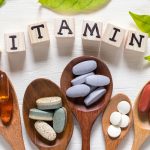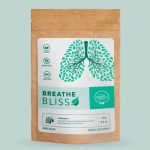Maintaining a balanced diet is crucial for achieving and maintaining optimal health. It provides all the nutrients your body needs to function efficiently, helps manage weight, boosts overall well-being, and reduces the risk of chronic diseases. This comprehensive guide will explore the components of a balanced diet, the benefits of various food groups, and practical tips for incorporating these foods into your daily meals.
Understanding the Components of a Balanced Diet
A balanced diet encompasses a variety of foods that provide the body with essential nutrients, including carbohydrates, proteins, fats, vitamins, and minerals. These nutrients are vital for energy, growth, and bodily functions.
Carbohydrates: Carbohydrates are the body's primary energy source. They can be found in fruits, vegetables, grains, and legumes. Whole-grain carbohydrates, such as brown rice, whole-wheat pasta, and wholemeal bread, are preferable because they contain more fiber, vitamins, and minerals than their refined counterparts. Choose wholegrain or wholemeal varieties whenever possible to enhance your dietary fiber intake and support digestive health.
Proteins: Proteins are essential for building and repairing tissues, producing enzymes and hormones, and supporting immune function. Protein sources include meat, poultry, fish, eggs, beans, pulses, nuts, and seeds. Opting for lean meats and plant-based proteins can help reduce saturated fat intake. Incorporate a variety of protein sources into your diet to ensure you receive a wide range of amino acids and other beneficial nutrients.
Fats: Healthy fats, such as those found in avocados, nuts, seeds, and oily fish, are important for brain function, hormone production, and absorption of fat-soluble vitamins. Replace saturated and trans fats with unsaturated fats to support heart health. In cooking, use vegetable oils like olive, canola, or sunflower oil instead of butter or lard.
Vitamins and Minerals: A wide range of vitamins and minerals are needed to maintain overall health. Fruits and vegetables are excellent sources of these essential nutrients. Aim to consume various colorful fruits and vegetables daily to ensure you receive a broad spectrum of vitamins and minerals. Dairy products, fortified alternatives, and certain fish also provide important nutrients like calcium and vitamin D, which are vital for bone health.
The Benefits of Various Food Groups
Grains and Starchy Foods
Grains and starchy foods are vital for providing energy and fiber. Whole grains, such as brown rice, quinoa, oats, and whole-wheat products, offer more fiber and nutrients than refined grains. The fiber in whole grains aids digestion, helps maintain a healthy weight, and lowers the risk of heart disease.
Potatoes, particularly when consumed with their skins, are another excellent source of vitamins and fiber. When preparing potatoes, keep the skins on to maximize their nutritional benefits.
Fruits and Vegetables
Fruits and vegetables are rich in vitamins, minerals, and antioxidants, essential for protecting the body against cellular damage and boosting the immune system. Vegetables such as spinach, broccoli, and kale provide important nutrients like vitamins A and C, folate, and potassium. Fruits like apples, oranges, bananas, and berries are high in fiber, vitamins, and antioxidants.
Diverse consumption of fruits and vegetables helps reduce the risk of chronic diseases, including heart disease, stroke, and some cancers. For optimal health benefits, aim to fill half your plate with fruits and vegetables at each meal. For a comprehensive list of recommended fruits and vegetables, visit the MyHealthfinder.
Dairy and Dairy Alternatives
Dairy products are a major source of calcium, protein, and other essential nutrients that support bone health. Choose low-fat or fat-free dairy options to reduce your intake of saturated fats. Alternatives like fortified soy beverages and yogurt can also provide similar nutritional benefits. When selecting dairy alternatives, opt for unsweetened, calcium-fortified versions to maintain nutrient intake without added sugars.
Protein-Rich Foods
Protein is necessary for growth, repair, and overall body function. Protein sources include meat, poultry, fish, eggs, beans, nuts, and seeds. Fish, particularly oily fish like salmon, sardines, and trout, are excellent sources of omega-3 fatty acids that benefit heart health. Beans and legumes are rich in protein and provide fiber and other important nutrients.
Incorporating various protein sources in your diet ensures you receive various nutrients. For more information on protein-rich foods, visit the National Institutes of Health.
Healthy Fats and Oils
Healthy fats are crucial for sustaining energy levels, supporting cell growth, and protecting organs. Sources of healthy fats include avocados, olive oil, nuts, seeds, and fatty fish. These fats help reduce inflammation and lower the risk of chronic diseases.
When cooking, replace saturated fats like butter with healthier options like olive oil. Additionally, using oil-based salad dressings instead of creamy ones can reduce your intake of unhealthy fats.
Practical Tips for a Balanced Diet
Plan Your Meals
Planning your meals ahead of time can help ensure you include a variety of food groups and nutrient-dense options in your diet. Create a weekly meal plan that balances fruits, vegetables, grains, proteins, and healthy fats. This can also help you avoid last-minute, unhealthy food choices.
Read Food Labels
Understanding food labels can help you make healthier choices. Look for whole grains as the first ingredient in grain products, check for added sugars in dairy alternatives, and choose products with lower sodium levels. Reading labels can also help you avoid trans fats and choose products with healthier unsaturated fats.
Cook at Home
Preparing meals at home allows you to control the ingredients and cooking methods, leading to healthier meals. Experiment with different recipes that incorporate a variety of food groups. Baking, grilling, steaming, and roasting are healthier than frying.
Stay Hydrated
Water is essential for maintaining bodily functions, including digestion, circulation, and temperature regulation. Aim to drink at least eight glasses of water a day. Consuming hydrating foods like fruits and vegetables can also contribute to overall hydration.
Balance Portions
Using portion control can help prevent overeating and ensure you consume a balanced variety of nutrients. Using smaller plates, attention to hunger cues, and avoiding distractions while eating can promote mindful eating practices.
Snack Wisely
Healthy snacks can keep you energized between meals. Opt for snacks that mix with hummus, such as nuts, yogurt, fruit, or whole-grain crackers that mix protein, fiber, and healthy fats. Avoid snacks high in added sugars, unhealthy fats, and artificial ingredients.
Incorporating Seasonal and Local Foods
Eating seasonal and local foods can enhance the nutritional quality of your diet. Seasonal fruits and vegetables are often fresher and more nutrient-dense. Shopping at local farmers' markets supports local agriculture and offers a variety of fresh, in-season produce.
Moreover, consuming a diet rich in seasonal and local foods can introduce you to new flavors and cooking methods, making healthy eating more enjoyable and sustainable.
Conclusion
Adopting a balanced diet is a cornerstone of good health. By including a variety of whole grains, proteins, healthy fats, fruits, and vegetables in your meals, you can ensure your body receives the nutrients it needs to function optimally. Planning meals, understanding food labels, and incorporating diverse food groups are practical steps toward achieving and maintaining a balanced diet.
For more information on eating a balanced diet, visit the NHS Live Well page or explore additional resources from MyHealthfinder.
By prioritizing a balanced diet, you invest in your long-term health and well-being, paving the way for a vibrant, energetic, and fulfilling life.










